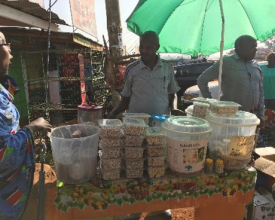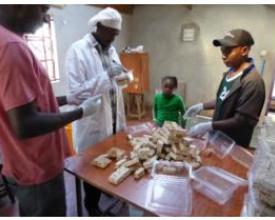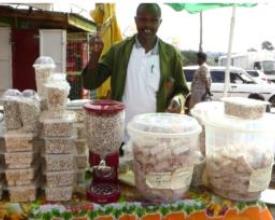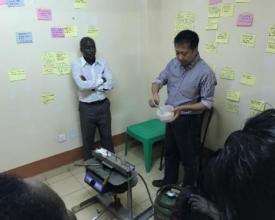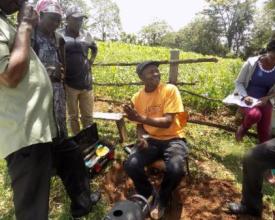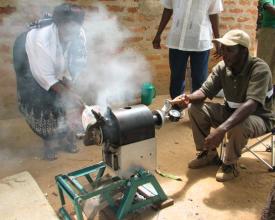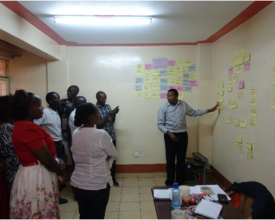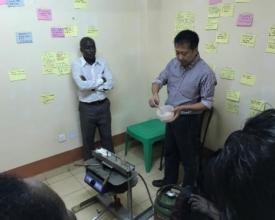
Impulsar los alimentos nutritivos infrautilizados como alternativas locales a los tentempiés
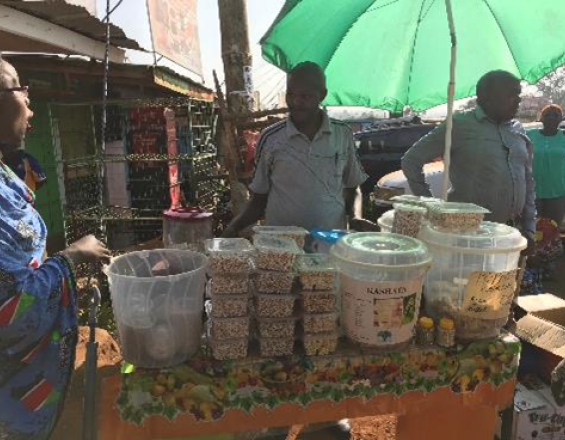
Los alimentos locales y autóctonos típicos de una zona suelen ser más nutritivos que las variedades importadas compradas en las tiendas. Al acortar las cadenas de suministro, la venta de estos alimentos también beneficia a los agricultores locales. Sin embargo, estos alimentos suelen estar muy infrautilizados.
El inflado o popping puede ayudar a hacer más atractivos ciertos alimentos locales como tentempiés, ofreciendo alternativas saludables a la comida rápida importada y utilizando de forma sostenible la biodiversidad, al tiempo que se impulsan los ingresos locales. El uso de esta tecnología fomenta el consumo de cereales y legumbres locales infrautilizados mediante la adición de valor.
Contexto
Défis à relever
El reto:
El elevado consumo de aperitivos hipercalóricos, como patatas fritas, dulces y patatas fritas, ha provocado un aumento de las enfermedades no transmisibles entre adultos y niños en Kenia.
Además de ser poco saludables, estos aperitivos son caros, lo que supone una carga financiera para muchos hogares de ingresos bajos y medios. Los agricultores y vendedores locales también se benefician menos de los alimentos importados, ya que los beneficios se obtienen más arriba en la cadena de valor.
Aunque existen alternativas saludables en forma de especies vegetales locales, a menudo son menos conocidas y rara vez se utilizan como tentempiés. La infrautilización de estas fuentes de alimentos conduce a una infravaloración de la biodiversidad local y a menos incentivos para salvaguardar y utilizar de forma sostenible estos recursos.
Ubicación
Procesar
Resumen del proceso
Bioversity International trabaja codo con codo con la comunidad y la empresa DK engineering, fomentando la disponibilidad y la adopción de la intervención. Bioversity sirve de enlace entre los otros dos socios, mientras que el fabricante aporta los conocimientos técnicos sobre el uso y el mantenimiento de la maquinaria de soplado y reventado.
Además de vincular a las dos partes interesadas, Bioversity también aporta pruebas científicas del contenido de nutrientes y los beneficios de los cereales. Esto se hace a través de la investigación y la publicación. La organización también proporciona educación nutricional a los participantes en las intervenciones de formación y asimilación.
Los individuos y grupos que utilizan la máquina informan a sus diversas comunidades sobre los beneficios financieros y nutricionales de la iniciativa, tanto para la generación de ingresos como para el consumo de sus productos, las galletas y los cereales reventados.
Bloques de construcción
Maquinaria
- El conocimiento y las capacidades para gestionar la intervención requieren una formación y un seguimiento continuos para que la aplicación tenga éxito.
- La máquina sopladora y la asistencia técnica corren a cargo de nuestro socio del sector privado, DK Engineering.
Factores facilitadores
- Educación nutricional sobre la importancia de la diversidad dietética y el contenido en nutrientes de estos aperitivos.
- Sensibilización de la comunidad sobre el aumento de las enfermedades no transmisibles y su relación con los alimentos y aperitivos que consumen.
- Apoyo gubernamental mediante subvenciones a los precios de las materias primas
- Apoyo de la comunidad a través de la aceptación, la compra, el consumo y los comentarios sobre los aperitivos.
Lección aprendida
- La evaluación y el seguimiento son un aspecto importante de cualquier proyecto
- Una intervención es bien recibida si su aplicación va precedida de educación y formación
Recursos
Asociación
2. 2. Asociaciones.
Bioversity International participa como socio investigador y también proporciona educación nutricional y sensibilización sobre el valor de los cereales reventados. El sector privado (supermercados y otros puntos de venta al por menor) puede ser una fuente de mercado para los productos. Bioversity International participa como socio investigador y también proporciona educación nutricional y sensibilización sobre el valor de los cereales reventados. El sector privado (supermercados y otros puntos de venta al por menor) puede ser una fuente de mercado para los productos.
Factores facilitadores
- Educación nutricional sobre la importancia de la diversidad dietética y el contenido en nutrientes de estos aperitivos.
- Sensibilización de la comunidad sobre el aumento de las enfermedades no transmisibles y su relación con los alimentos y aperitivos que consumen.
- Apoyo gubernamental mediante subvenciones a los precios de las materias primas
- Apoyo de la comunidad mediante la aceptación, la compra, el consumo y las opiniones sobre los aperitivos.
Lección aprendida
La intervención participativa es una apuesta segura para el éxito de la aplicación: la comunidad debe participar desde el principio para que se identifique con el proceso y los resultados.
Recursos
Impactos
1. El consumo de tentempiés saludables por parte de adultos y niños.
2. Generación de ingresos.
3. Diversidad dietética al fomentar el consumo de alimentos que de otro modo se descuidarían.
4. Conservación de los recursos alimentarios locales.
5. 5. Creación de una base empírica sobre el valor de las alternativas locales a los tentempiés.
Beneficiarios
Toda la comunidad se beneficia de la intervención de una de las siguientes maneras:
1. Mejora de la nutrición gracias a la ingesta de tentempiés saludables
2. Diversidad dietética por el consumo de estos cereales
3. Mejora de los medios de subsistencia como oportunidades para cultivadores y vendedores
Objetivos de Desarrollo Sostenible
Historia
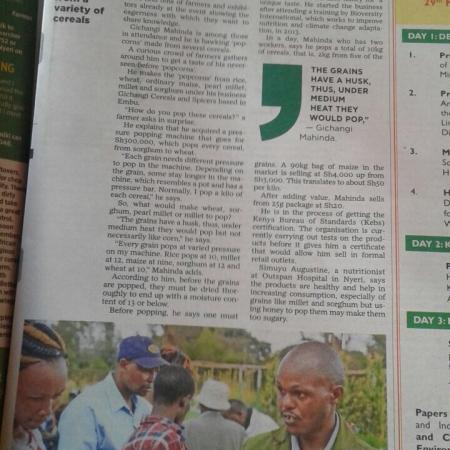
Según uno de nuestros empresarios, el Sr. Gichangi, el puffing es una iniciativa empresarial prometedora y apasionante. En comparación con su otra actividad empresarial, que sigue desarrollando al mismo tiempo que el soplado, este último es más rentable, ya que le reporta más del doble de beneficios.
Actualmente está desarrollando un negocio de cereales que complementa la labor de esponjado. El Sr. Gichangi está trabajando para convertirse en un empresario del soplado en toda regla, con el fin de disfrutar de los beneficios y, al mismo tiempo, proporcionar aperitivos nutritivos a la comunidad.
